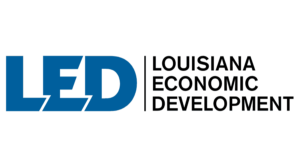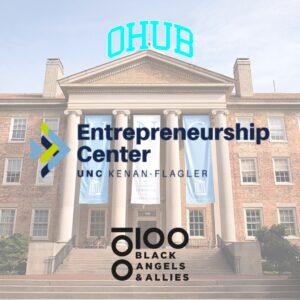The Honorable Hank Johnson
Congressman, Georgia’s Fourth District
5240 Snapfinger Park Dr Suite 140
Decatur, GA 30035
Re: Proposed Technology Ecosystem Skills and Learning Accelerator (TESLA) of the “Coronavirus Aid, Relief, and Economic Security Act” or the “CARES Act”
Congressman Johnson,
I hope this letter finds you safe, sound & well during these very unprecedented times. Our prayers are with you and your team as you navigate Capitol Hill on behalf of your constituents in Georgia’s Fourth District and your extended constituents throughout America.
With brevity, I would like to make the case for the inclusion of Twenty Six Billion Dollars ($26B US) into the CARES 2 Act to ensure that United States Citizens from socially and economically disadvantaged communities have equitable access to high demand technology skills, high demand career pathways, high growth startup technical assistance and early stage capital.
Challenges
COVID-19 has ushered in an almost immediate new normal that is impacting how we live, work, learn, play & yes, worship. Nearly all “non-essential” businesses have ceased their in-person operations nationwide. Restaurants are closed. Bars and clubs are closed. Entertainment venues and sports events are cancelled indefinitely. Colleges, universities and secondary schools – public, private and charter – are closed to in-person instruction and are working tirelessly to pivot to a remote learning environment. Millions of students have been forced to adapt to online and remote learning immediately.
When businesses and organizations that survive this pandemic reopen, they will operate more efficiently by leveraging automation, robots and software. This will quickly begin to replace out of demand blue collar and white collar roles across every relevant industry and supply chain in America and the world.. Hundreds of thousands, even millions, of people will be redirected to warehouses and fulfillment centers to work alongside robots, drones and machines in order to fulfill the demand of in-home commerce and the Gig economy, e.g. Macy’s furloughs 130,000. Amazon hires 170,000. Facebook hires 10,000.
On our recent OHUB.SXSW #BlackAndHired virtual experience with 1100+ attendees, we featured one of the lead researchers and authors of McKinsey’s recent report on the future of work in Black America. McKinsey reported that Black America is slated to lose 4.5 million jobs in the next decade because of automation. Black men will be impacted the most.
However, COVID-19 has accelerated this disruption in our national workforce. The Federal Reserve Bank that 47 million Americans will be displaced from their jobs. In April, McKinsey predicted that Black Americans will lose 7 million jobs during this process. Many in our communities won’t be employable.
That said, many technology companies, including startups, are thriving in this current economic climate.
Today, 60% of net new jobs are created by high growth technology companies fueled by billions in venture capital each year. Yet, less than 2% of Silicon Valley engineers are Black & Latinx.
In 2019, according to the National Venture Capital Association, United States venture capital investments surpassed $130 billion for the second consecutive year in a row, enabling over 10,777 high growth companies to grow and scale. Yet, less than 1% of Black & Latinx founders have been able to successfully access this capital. Since 2000, only 200 Black and Brown high growth firms have raised over least $1 million in venture capital.
So, although companies leveraging edge technologies for the future of work, the fourth industrial revolution and beyond, have created unfathomable multi-generational wealth for the entrepreneurs, their teams and investors, many times with no reliance on pre-existing multi-generational wealth, this new found wealth has escaped those technologists, business professionals, entrepreneurs and investors from socially disadvantaged communities due to a lack of access and opportunity created by systemic and structural exclusion as evidenced by the lack of distribution of PPP & EIDL to minority owned firms.
Without access and opportunity for socially disadvantaged communities, the same innovation density that is driving the future of the United States and world economy according to this Northwestern University study, directly exacerbates income inequality, economic immobility and poverty for excluded communities.
We are of the strong opinion that next to ensuring the health and safety of Americans, an economic stimulus package that actually reaches the excluded is our next greatest priority. Without disruptive policy formation, we will not be able to reverse the permanent racial wealth chasm we are creating in this country between the “haves” and “have nevers”.
Policy Solutions
In our 2019 guide published with Dell Gines at The Federal Reserve Bank of Kansas City on Building Inclusive Entrepreneurship Ecosystems in Communities of Color, Opportunity Hub puts forth a metrics driven blueprint of how we can ensure that everyone, everyone in America is equitably positioned in the future of work, fourth industrial revolution and beyond as path to shared prosperity and multi-generational wealth with no reliance on multi-generational pre-existing wealth. Our precise policy recommendations present a scalable and sustained thesis for the reskilling of all Americans, equitably.
- Workforce response activities. As outlined in Section 4515 of the CARES Act, “of the funds available for program year 2019 for statewide activities under section 128(a) of the Workforce Innovation and Opportunity Act (29 U.S.C. 3163(a)), such funds may be used for statewide rapid response activities as described in section 134(a)(2)(A) (29 U.S.C. 3174(a)(2)(A)) for responding to the COVID-19 national emergency”, we are requesting an urging resolution that Governor’s direct WIOA funding to virtual and in-person software engineering, AWS cloud engineering, Cyber Security analyst, Salesforce, technical sales and growth marketing bootcamps that are certified by the state in the amount of Fifteen Billion Dollars ($15,000,000,000 US) to train 1,000,000 Black Amereicans from socially disadvantaged communities for high demand careers. Our OHUB Futures’ Momentum@Morehouse Coding Certificate Program is an example of a scalable bootcamp.
- Entrepreneurship. Ecosystem building organizations, entrepreneurship support programs, pre-accelerators, accelerators and technology incubators are on the front lines of high growth company building in America. Black Technology Startup Ecosystem Builders are on the front line of high growth company building amongst socially disadvantaged communities such as the African American community. Every day, ideas are nurtured into viable businesses. Yet, these organizations are not referenced in CARES Act 1.
Under Section 1103, Expand the definition of “resource partner” to mean –
- Ecosystem building organizations,
- Entrepreneurship support programs,
- Entrepreneurship pre-accelerators or accelerators; and
- Technology incubators
With this expanded definition, the Administration may provide financial assistance in the form of grants to resource partners to provide education, training, and advising to cover small business concerns. Here is a proposed use of funds.
Beyond the revised definition, we are requesting the Administration to allocate One Billion Dollars ($1,000,000,000) over the next ten years to ecosystem builders in the regions and states that have the largest populations of Black Americans.
- Capital. The Administration will reactivate the 2010 State Small Business Credit Initiative and issue Ten Billion ($10,000,000,000 US) over the next ten years in the form of convertible notes and equity as issued and accepted by most startup accelerators and incubators. Venture funds, ecosystem building organizations, entrepreneurship support programs, entrepreneurship pre-accelerators or accelerators; and technology hubs that can demonstrate a historical mission, precedence and track record of serving and investing in marginalized and socially disadvantaged entrepreneurs would be selected to invest the capital.
- Minimum investments of $50,000
- Maximum investments of $1,000,000
- Payment Protection Plan. Under Section 1102, expand the definition of “employee” to include full time independent contractors through 1099’s – which is essentially the entire United Gig economy and startup ecosystem, particularly Black & Latinx startup founders; and allocate Two Hundred Million Dollars ($200,000,000) to cover startups that apply through authentically diverse, equitable and inclusive owned and operated ecosystem building organizations, entrepreneurship support programs, entrepreneurship pre-accelerators, accelerators, venture capital firms; and technology incubators.
Budget Narrative
Use of Proceeds | Economic outcome | Allocation |
Workforce technology skills development | Create 1,000,000 new jobs | $15,000,000,000 US |
Entrepreneurship education, training & support | Train and position 100,000 minority high growth firms for the future of work | $1,000,000,000 US |
Early stage equity capital | Fund the top 10,000 tech firms with a 12-18 month runway to profitability | $10,000,000,000 US |
Payroll protection plan | Provide payroll protection for 10,000 – 20,000 firms in the startup ecosystem | $200,000,000 US |
Total | $26,000,200,000 US |
This total ask of just Twenty Six Billion Dollars ($26,000,000,000 US) will create 1,000,000 net new high demand technology & computing jobs, enable 100 ecosystem building organizations to train 100,000 high growth technology firms and provide funding to the leading 10,000 minority lead technology startups in America over the next ten years that will continue to create new jobs while recapturing loss community wealth due to centuries of economic exclusion all while continuing to aspire future generations of all Americans.
Additionally, this relatively small allocation from the CARES 2 Act will yield over $50B US in measurable starting annualized new income and economic output for the American economy. That’s $500B US over the next decade; and who knows, one of the thousands of startups that are accelerated during this period may bring a cure for COVID19 and other Coronaviruses to market; or solve some of society’s most pressing challenges in remote learning, educational technology, health information technology, e-commerce, build tech, Cybersecurity and beyond.
As one of four of the first Black men and women in America to raise millions in venture capital during the first dot com bust in 2001, I have seen first hand how access to technology skills and early stage equity capital can shift the trajectory of one’s business & life; and today, as the Executive Chairman & Chief Executive officer of Opportunity Hub (OHUB, the leading technology, startup and venture ecosystem building skills, jobs, entrepreneurship support program, accelerator and technology hub created to ensure that everyone, everywhere has equitable access to the future of work, fourth industrial revolution and beyond as a path to shared prosperity and multi-generational wealth creation with no reliance on pre-existing multi-generational wealth, this is my definitive ask.
Let’s not lose the last ten years of gains we have worked tirelessly to create in the Black tech.
Let’s make history together.
With highest regards,
+ Rodney Sampson, MBA
Executive Chairman & CEO, Opportunity Hub (OHUB)
General Partner, 100 Black Angels Fund I
Venture Partner, Draper Goren Holm
Nonresident Senior Fellow, The Brookings Institution
Faculty, Morehouse College
Suffragan Bishop, International Bishops Conference
Member, Board of Directors, Multicultural Media, Technology & Internet Council
Member, Board of Advisors, AI4All
CC: All Members of The United States 116th Congress
All Governors
All Mayors
All Diversity, Equity and Inclusion Focused Ecosystem Building Organizations, Skills Providers, Entrepreneurship Support Programs, Accelerators, Venture Capital Firms & Technology Hubs
All Black Founders
All Black Americans
All Allies of Black America, the Black Technology Ecosystem and beyond




